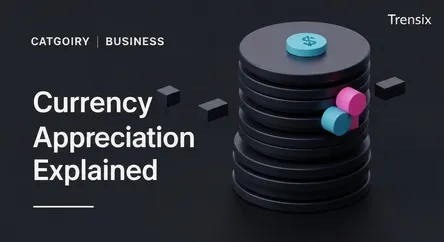Business
Currency Appreciation Explained

Currency appreciation is when a currency's value increases relative to another. Learn what drives it and how it impacts imports, exports, and travel.
What is it?
Currency appreciation is an increase in the value of one country's currency relative to another in the foreign exchange (forex) market. When a currency appreciates, it means it has become "stronger." One unit of that currency can now purchase more units of a foreign currency than it could before. This change is driven by market forces of supply and demand, influenced by factors like a country's interest rates, inflation levels, economic stability, and trade balance. For instance, if the U.S. dollar appreciates against the euro, an American traveler can buy more goods and services in Europe for the same amount of dollars.
Why is it trending?
Currency values are constantly in flux due to global economic shifts. Recently, currency appreciation has been a major topic as central banks worldwide adjust their monetary policies. Many have raised interest rates to combat inflation, which attracts foreign investment and strengthens their currency. Geopolitical instability also plays a role, as investors flock to "safe-haven" currencies like the U.S. dollar or Swiss franc during uncertain times, causing them to appreciate. Strong economic performance and positive trade balances in a country can also boost investor confidence and drive up its currency's value.
How does it affect people?
A stronger currency has mixed effects. For consumers, it's often a positive, as it makes imported goods cheaper and lowers the cost of international travel. However, it can harm a country's export industries because their products become more expensive for foreign buyers, potentially leading to lower sales and job losses in those sectors. For businesses, it affects the cost of importing raw materials and the profitability of overseas sales. It also impacts international investors, whose returns can be significantly altered by shifts in exchange rates.